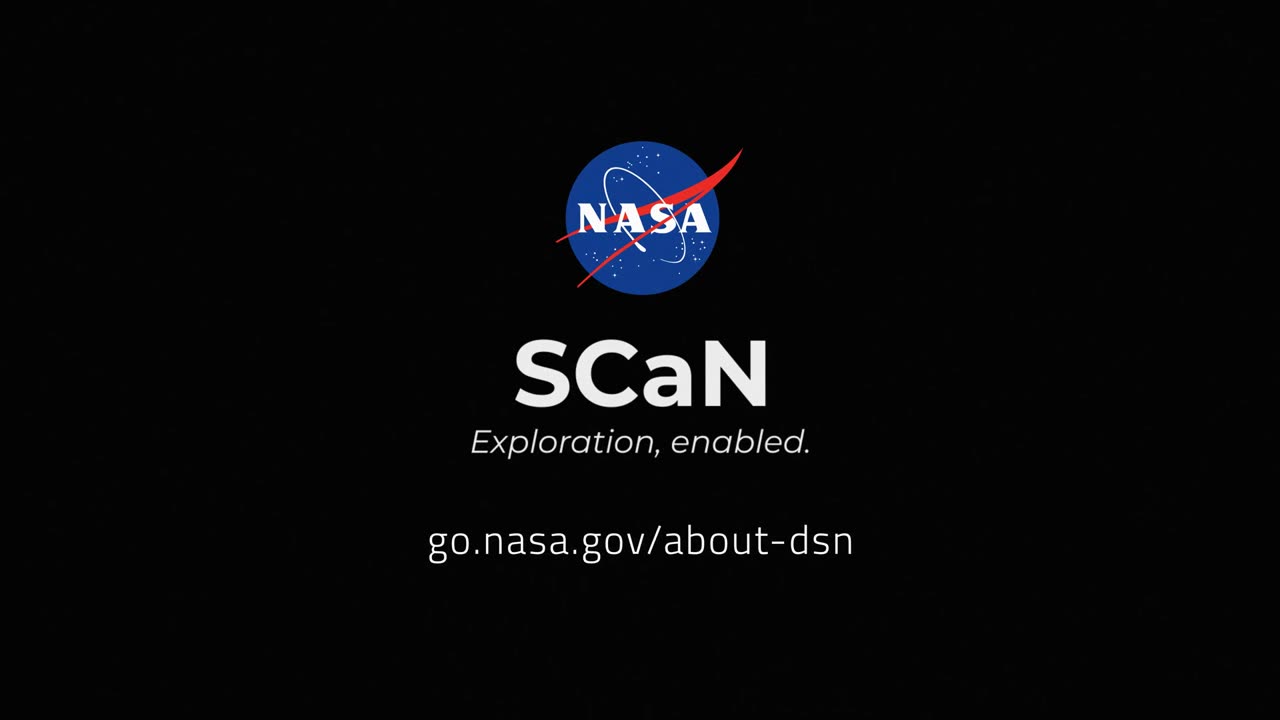Premium Only Content

How NASA Uses Gravity and Radio Waves to Study Planets and Moons
The Deep Space Network, NASA’s international collection of giant radio antennas used to communicate with spacecraft at the Moon and beyond, helps scientists and engineers use gravity and radio science experiments to learn more about our planetary neighborhood.
After reaching a spacecraft reaches its destination, it uses radio antennas to communicate with the Deep Space Network, which in turn transmits radio signals back to the spacecraft. Every spacecraft travels in a predetermined path emitting radio signals as it orbits around its target. Scientists and engineers can infer the spacecraft's location and how fast it's going by measuring changes in the spacecraft's radio signal frequency. This is made possible by the Doppler effect, the same phenomenon that causes a siren to sound different as it travels towards and away from you.
The Doppler phenomenon is observed here when the spacecraft and the Deep Space Network antenna move in relation to each other. Differences between the frequency of radio signals sent by the spacecraft as it orbits and signals received on Earth give us details about the gravitational field of a planetary body. For example, if the gravity is slightly stronger, the spacecraft will accelerate slightly more. If gravity is slightly weaker, the spacecraft will accelerate slightly less. By developing a model of the planetary body's gravitational field, which can be mapped as a gravitational shape, scientists and researchers can deduce information about its internal structure.
The Deep Space Network was developed by and is managed by NASA’s Jet Propulsion Laboratory (JPL) in Southern California. The antennas of the Deep Space Network are the indispensable link to robotic explorers venturing beyond Earth. They provide the crucial connection for commanding our spacecraft and receiving never-before-seen images and scientific information on Earth, propelling our understanding of the universe, our solar system and ultimately, our place within it.
JPL manages the Deep Space Network for the Space Communications and Navigation (SCaN) Program, based at NASA Headquarters within the Space Operations Mission Directorate.
-
 2:05:01
2:05:01
TimcastIRL
6 hours agoTrump Just Ended H1B Visas In Major Crackdown, Charging $100k Per Visa | Timcast IRL
264K149 -
 4:02:20
4:02:20
Nerdrotic
11 hours ago $13.85 earnedKimmel MELTDOWN | Hollywood Boycotts Disney | Friday Night Tights 372 with Kaida
109K18 -
 34:08
34:08
Bannons War Room
6 hours agoMEGYN KELLY: Jimmy Kimmel and Sore Cultural Losers, and Charlie Kirk's Spiritual Revival, w/ Bannon
70.3K67 -
 59:27
59:27
NAG Podcast
6 hours agoBrandon Straka: BOLDTALK with Angela Belcamino
63.7K10 -
 59:43
59:43
Sarah Westall
4 hours agoVietnam Shuts down 86 Million Bank Accounts, The Fourth Turning & more w/ Andy Schectman
46.4K9 -
 1:17:51
1:17:51
Flyover Conservatives
11 hours agoMary Flynn O’Neill and Clay Clark: The Church Must Rise or America Falls | FOC Show
36.8K3 -

I_Came_With_Fire_Podcast
14 hours agoThe Global ANTIFA Connection You've Never Heard Of | The Israel Question
29.4K4 -
 16:38
16:38
RTT: Guns & Gear
21 hours ago $2.73 earnedExtar EP9 Review: The Best Budget 9mm PCC?
46.6K6 -
 7:53
7:53
Rethinking the Dollar
14 hours agoMass Firings in Tech: The Real Agenda Behind 166,000 Cuts
53.4K11 -
 1:02:28
1:02:28
BonginoReport
9 hours agoFeds Monitor Threats Ahead of Kirk Memorial - Nightly Scroll w/ Hayley Caronia (Ep.138)
260K150